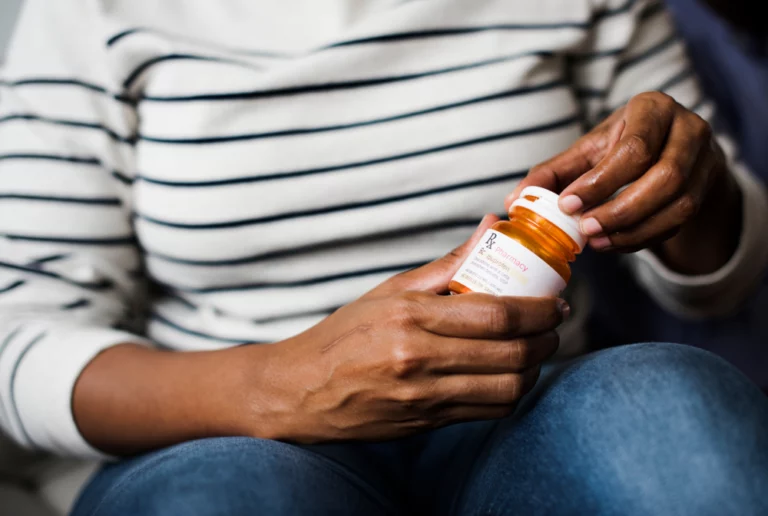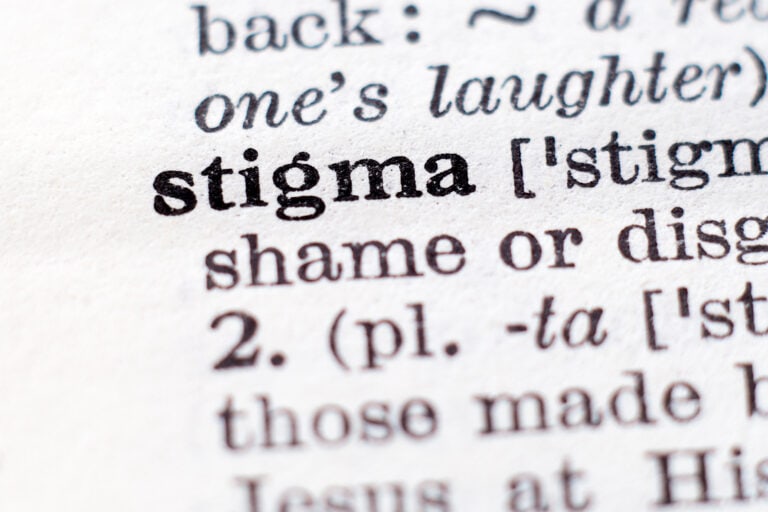Pseudoaddiction and true addiction are two concepts related to substance abuse and medication use that can be easily confused but have distinct differences. Pseudoaddiction refers to behaviors that mimic addiction but result from inadequate pain management. In contrast, addiction is a chronic, relapsing brain disease characterized by compulsive drug seeking and use despite the harmful consequences. Understanding the differences allows medical professionals to ensure that individuals get the proper support and care they need.
In this article, we will cover what pseudoaddiction is, the warning signs and symptoms of pseudoaddiction and true addiction, and the treatment options available for addiction.
What is Pseudoaddiction?
Pseudoaddiction is the idea that a patient with untreated chronic pain may behave in a way that mimics an addict’s behavior. The pharmaceutical industry developed the term in the 1990s to explain what they claimed was an epidemic of drug-seeking behavior caused by untreated pain rather than actual addiction. Companies stated that individuals who were undermedicated for pain may display drug-seeking behavior or physical withdrawal symptoms that look similar to those of an addict.
They may seek illicit substances or higher doses of medication without proper approval. They may also act aggressively, lie, and even deceive for a prescription in order to get what they want. It appears remarkably similar to true addiction, but unlike true addiction, the drug-seeking behaviors of pseudoaddiction cease when pain is appropriately treated and controlled. This shows that a patient suffering from the phenomenon is not genuinely addicted.

Warning Signs & Symptoms
It is interesting to note that signs and symptoms of pseudoaddiction can closely mimic those of someone suffering from substance abuse. Common symptoms of the disorder can include mental health issues such as feelings of:
- Anxiety, Fear, or Panic
- Depression or Apathy
- Hopelessness
- Sleep Issues
- Fatigue
- Anger
While pseudoaddiction and true addiction can appear very similar, it is possible to tell them apart if you look at specific symptoms. Common signs of true addiction include:
- Physical and Mental Dependence on a Substance
- Withdrawal Symptoms When the Use is Stopped
- Isolation from Family Members, Friends, or Coworkers because of the Addiction
- Having Issues with Personal Relationships because of the Substance Abuse
- Secretive Behavior (ie, Hiding the Substance Abuse or Consuming it in Privacy)
- Engaging in Increasingly Risky Behavior
- Having the Substance Become the Focus of Your Daily Life
- Refusing to Admit or Believe there is an Issue
- Putting Your Financial Well-Being at Risk in Order to Continue Using
As stated previously, while pseudoaddiction and true addiction are similar, the main difference is the individual’s motivations. Are they seeking opioids for pain relief or fun? If the pain is appropriately controlled, are they still attempting to obtain medication?
Is Pseudoaddiction True Addiction?
The concept of pseudoaddiction states that pseudoaddiction differs from true addiction based on the individual’s intentions. Patients engaging in abnormal drug-related behaviors because of unrelieved pain are known as pseudoaddicts, and those who engage in the behavior for the feeling they receive are known as addicts. Those with pseudoaddiction look for more pain medication in order to self-treat, whereas those with substance use disorders are driven to drug use for a pleasurable feeling and cannot stop themselves from seeking them. In other words, when a real addict gets a hit, the hunt continues; when a pseudo-addict does not feel pain, the pursuit for pain relief ends.
It’s important to note that while pseudoaddiction is initially distinct from authentic addiction, it could result in true dependency if not adequately treated or controlled. In addition to the increased risk of developing an opioid use disorder, many pain experts are now coming to the conclusion that prescribing higher doses of opioid medications is not necessarily the most effective way to treat acute pain. Addiction and pseudoaddiction both produce very similar symptoms. Physicians must judge whether patients are seeking opioids for pain or addiction since there is frequently no way to tell them apart.

Some critics also claim that pseudoaddiction has a direct correlation to the opioid crisis because the concept essentially advocates for the overprescription of pain medication. It allows for mistakes to be made in dosage in favor of relieving all patients of pain, with the belief that it would be a bigger mistake to cause a patient to go through unnecessary pain than it would be to prescribe medication to someone who does not need it.
The Opioid Crisis and its Effect on Prescription Pain Medication
The opioid crisis as we know it began in the 1990s with the widespread release of prescription opioids. Companies, such as the OxyContin distributor Purdue Pharma, employed aggressive marketing tactics, financial incentives, and misleading claims to maximize profits. An all-out marketing campaign was touted as a mission to save millions of Americans from suffering through a life of severe pain. If a doctor didn’t prescribe medication to relieve a patient’s pain, they failed in their oath to do no harm. Many clinicians began to believe that there was a growing epidemic of untreated pain in America and that to address it properly, they must prescribe ever-increasing doses of pain-relieving drugs.
It’s no wonder that in recent years, prescription opioids have become the drug of choice for pain treatment in America. Physicians’ fears of opioids causing or contributing to addiction have diminished due to their increased popularity. Drug companies made claims that a higher dose of prescription drugs could lower the risk factor for addiction. This financially driven, purposeful misinformation has led to a severe escalation in the misuse of opiates and opioid overdose deaths. More than 500,000 Americans have died from opioid overdoses, both legal and illegal, over the past two decades.
The opioid epidemic has made it difficult for healthcare providers to accurately determine a patient’s motives regarding pain management when prescribing medication. Is the patient simply seeking pain relief, or are they in the active stages of drug addiction? An unfortunate side-effect of the prescription opioid epidemic is that patients with under-treated pain that could be relieved with opioid painkillers are often overlooked or ignored because of their drug-seeking behaviors.
While this oversight is unfortunate, it is a hard decision for many healthcare professionals. Pseudoaddiction is built from the belief that opioids are the best approach to managing long-term pain. This is not always the case. Terminal patients may benefit from opioids for pain management, but those with chronic pain or postoperative pain may be better served with a different approach.

Treatment Options for Pseudoaddiction
While there are many concerns that can come from treating pseudoaddiction, it’s essential for healthcare professionals to treat the underlying pain of pseudoaddiction. To effectively treat pseudoaddiction, you must first identify and address the underlying pain issue. Some beneficial treatment options are:
- Adequate pain management
- Patient education
- Behavioral therapies
- Complementary and alternative medicine
- Multidisciplinary pain management
Iatrogenic Syndrome and Pseudoaddiction
Iatrogenic syndrome is a term used to describe a set of symptoms or conditions caused by medical treatment. In the context of pseudoaddiction, iatrogenic syndrome can occur when a patient’s symptoms are mistakenly interpreted as addiction, leading to inappropriate treatment that worsens the patient’s condition.
Iatrogenic syndrome can occur in pseudoaddiction when the patient’s symptoms are misinterpreted as addiction, leading to inappropriate treatment that worsens the patient’s condition. Proper pain assessment and management, using a multidisciplinary approach, can help prevent iatrogenic syndrome in patients with pseudoaddiction.
Finding Help for Pseudoaddiction at Knoxville Recovery Center
It’s important to consult a professional if you are concerned about your or a loved one’s use of opioids. Knoxville Recovery Center is here to help you differentiate between addiction and pseudoaddiction and provide the best treatment possible if you are struggling with a substance use disorder.
Knoxville Recovery Center provides various services for those struggling with addiction or mental health issues. We provide comprehensive and holistic treatments to help with alcohol abuse, drug abuse, and mental health disorders, including medical detox, addiction treatment, and aftercare planning.
Our specialists are standing by and ready to help if you or a loved one is struggling and in need of assistance. Contact us today or call us to schedule a free and confidential consultation with one of our experts.








